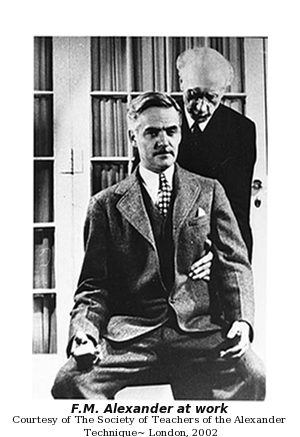Techniques of body awareness
Techniques of body awareness between Eastern and Western practices
Issues and perspectives in Physical Education

Event : Seminar « Techniques of body awareness between Eastern and Western practices »,
In meeting « Physical Education and Sport : Challenges and Future Directions ».
Place : SHANGHAI, East China Normal University (ECNU),
College of Physical Education and Health.
Dates : 8-11 / 06 / 2011.
Dead-line for abstract submission : 1st December 2010
Abstract instructions : 250 words maximum - Times New Roman, size 12 - english.
Seminar Presentation
Techniques of body awareness between Eastern and Western practices
Issues and perspectives in Physical Education
Techniques of body awareness (Chenault, Hamard, Hilpron, 2010) emerge in the 21st century, as a cross cultural meeting between Eastern and Western practices, to manage a better quality of life. Body techniques of meditation, yoga, qigong, taijiquan, martial arts or buto dance became more and more popular in Europe and North America during the second part of the 20th century. Even since then, body self-care has also grown with Fitness, Pilates, Feldenkrais and Alexander exercises, as well as physiotherapy, psychomotility or contemporary dance. At the same time, media coverage of the Olympic Games changed the perception of body image around the world, and the teaching in Physical Education.
The experience of the human body became a singular space from which to create meaning : between old or new religion, traditional or modern medicine, scientific objectivity or artistic subjectivity. It has become also a reflection of the conflict between the values of libertarian capitalism and democratic idealism (Parlebas, 2002), for example : sports competitions push the body’s limits through a process of selection and performance ; this seems to be the opposite of meditative movements (Larkey & al., 2009) which are accessible to all and focus on well-being, such as Chinese traditional yangsheng. However, both disciplines promote a self adaptation to life through good health and moral values. The problem is to understand what kind of self transformation is happening, according to the nature of the interaction between mind-body and technique (Martin, 2000).
The challenge for future physical education curriculae is to bridge teaching methods between these two social approaches, in order to guide students to evolve as world citizens sharing an autonomous body awareness. Anthropological and sociological studies about body techniques (Mauss, 1936), self techniques (Foucault, 2001) and habitus in sport (Bourdieu & Waquant, 1992) enlighten this fundamental question of education. Phenomelogical and neurophysiological studies about body schema (De Preester & Knockaert, 2005) present new data to describe the processes of the embodied mind (Varela & al., 1993) and tacit knowledge (Yu, 2008) : paving the way for establishing an epistemologic foundation of body awareness techniques, future direction for innovatory teaching methods in physical education.
References :
Bourdieu, P., Wacquant, L. (1992). An Invitation to reflexive sociology. Cambridge : Polity Press.
Chenault, M. Hamard, A., Hilpron, M. (2010). «Introduction aux techniques de conscience du corps». Transverse, 2 (in press).
De Preester, H., Knockaert, V. (2005). Body Image and Body Schema - Interdisciplanary perspectives on the body. Philadelphia: John Benjamin Publishing Company.
Larkey, L., Jahnke, R., Etnier, J., Gonzalez, J. (2009). « Meditative movement as a category of exercise ». Journal of Physical Activity and Health, 6, 230-238.
Martin, E. (2000). « Mind-body problems ». American Ethnologist, 27 (3), 569-590.
Mauss, M. (1936). « Les techniques du corps ». Journal de Psychologie, 32 (3-4), 271-293.
Foucault, M. (2001). L'herméneutique du sujet. Cours au Collège de France, 1981-1982. Paris, Gallimard : Le Seuil.
Parlebas, P. (2002). « Réseaux dans les jeux et les sports ». L’année sociologique, 52(2), 314-349.
Varela, F., Thompson, E., Rosch, E. (1991). The Embodied Mind: Cognitive Science and Human Experience. MIT Press.
Yu, Z. (2008). « Embodiment in Polanyi’s theory of tacit knowing ». Philosophy Today, Summer 2008,126-135.
Key words :
Techniques of body awareness, body experience, embodiment, physical education, teaching methods, Eastern and Western practices.
Registration : $350 registration fee ($300 for ISCPES members) will cover three breakfasts, three lunches, an end-of-conference banquet, all conference transportation, and of course, the conference. Student registration is $150.
Lodging : Single and double rooms will be available for $70.00, $40.00 or $ 30.00 a night.
More details about international meeting : www.iscpes.ecnu.edu.cn
Communications of the seminar will be publish in special edition of Transverse
(Metz, France, www.revues.org)
Contacts :
Marceau Chenault, post-doctor, East China Normal University: marceau.chenault@gmail.com
高强Gao Qiang, post-doctor, East China Normal
University: gaoqiang.ecnu@gmail.com
--
Marceau Chenault
Post-Doctor, College of Physical Education and Health,
East China Normal University, SHANGHAI
舍马索, 博士后老师, 中国, 上海市, 普陀区
同普路158弄, 华东师范大学青年教师公寓2号楼 203室, 邮政编码200062
e-mail : marceau.chenault@gmail.com



/https%3A%2F%2Falbert-kahn.hauts-de-seine.fr%2Ffileadmin%2F_processed_%2Fb%2F0%2Fcsm_MDAK_Natures-vivantes_1440x580_0e19c3574c.jpg)
/https%3A%2F%2Fwww.college-de-france.fr%2Fsites%2Fdefault%2Ffiles%2Fmedia%2Fimage%2F2024-03%2F3%20titre%20et%20dates_light.jpg)
/https%3A%2F%2Fwww.lespressesdureel.com%2Fimg%2Fouvrage%2F11379%2F_9788867496167_0_536_0_75.jpg)
/https%3A%2F%2Fwww.lespressesdureel.com%2Fimg%2Fouvrage%2F11395%2F103876_cover.jpg)
